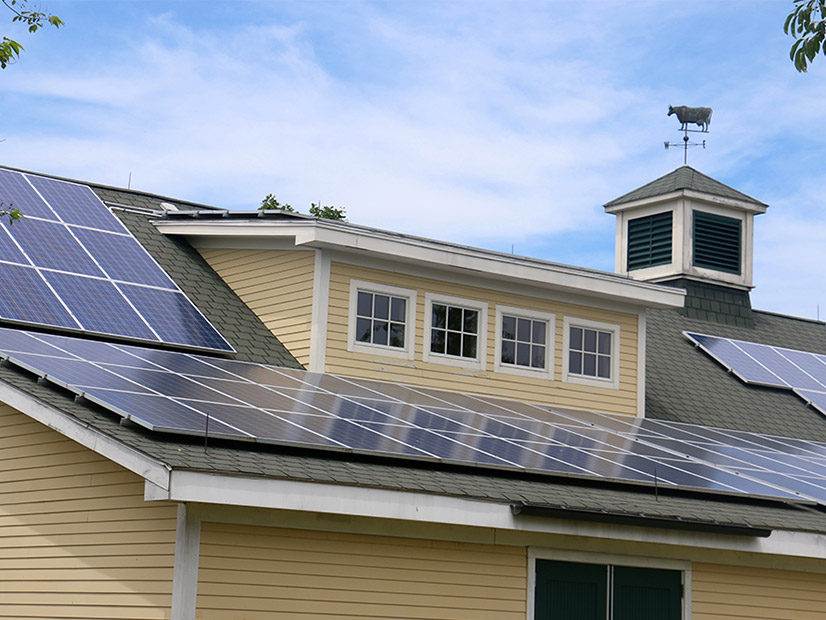Representatives of Maine’s solar industry say burdensome interconnection practices are threatening small-scale projects in the state.
Problems that large-scale solar developers are experiencing connecting projects to Maine’s grid recently triggered an investigation by regulators into Central Maine Power’s interconnection procedures. The same challenges, according to ReVision Energy co-founder Fortunat Mueller, are starting to affect smaller projects in Maine as well. (See Maine Regulators Probing CMP’s Interconnection Practices.)
A bill before the Joint Committee on Energy, Utilities and Technology (EUT) addresses those challenges directly (LD 1100). It would require the Maine Public Utilities Commission to adopt rules for interconnection of renewables that are based on “nationally recognized best practices” and ensure timely complaint resolution options that are not burdensome to small project owners.
In addition, the commission would have to contract an expert to evaluate near-term reforms for renewable energy interconnection standards, practices and procedures.
“Utility processes and [commission] processes are not set up for laypeople, and customers find it difficult to navigate those processes,” Mueller said at an EUT committee hearing on the bill April 13.
Cost allocation is the most significant challenge small project owners are facing, Mueller said.
Under current Maine rules, a project that requests interconnection to a circuit that is at capacity incurs the entire cost to upgrade the capacity. If the project that triggers the upgrade is a residential solar array, the interconnection cost will be disproportionate to the project size.
“We’re increasingly seeing circuits or substations around Maine … where the capacity is fully reserved by projects in the interconnection queue,” Mueller said. “That means for whole towns and whole neighborhoods there is no longer an option for businesses or residential customers to go solar without being the triggering project.”
The bill would push the PUC to establish rules that are consistent with the intent of laws passed in 2019 to foster solar expansion in the state.
“The PUC would have to learn about best interconnection practices, and require faster, smarter interconnection application reviews and decisions by [investor-owned utilities],” Steven Weems, executive director of the Solar Energy Association of Maine, said in his testimony. “The resulting rules would ensure small projects are not ground up unnecessarily in the melee pertaining to grid limitations, the processes for examining larger projects and, especially, the eventual costs of upgrading the system.”
PUC Plans Rulemaking
Garrett Corbin, legislative liaison for the PUC, said the commission is already engaged in work that aligns with the bill’s requirements and “questions the necessity” of the legislation.
“We anticipate opening a rulemaking process regarding small generator interconnection procedures,” Corbin said. “The rulemaking will consider cost-allocation requirements with respect to interconnecting customers.”
In addition, the commission is contracting a consultant to support a review of the requirements for the grid to accommodate the future electric transition, Corbin said. The review will identify procedures that would allow transparency of interconnection screening and upgrades for small-scale generators.




